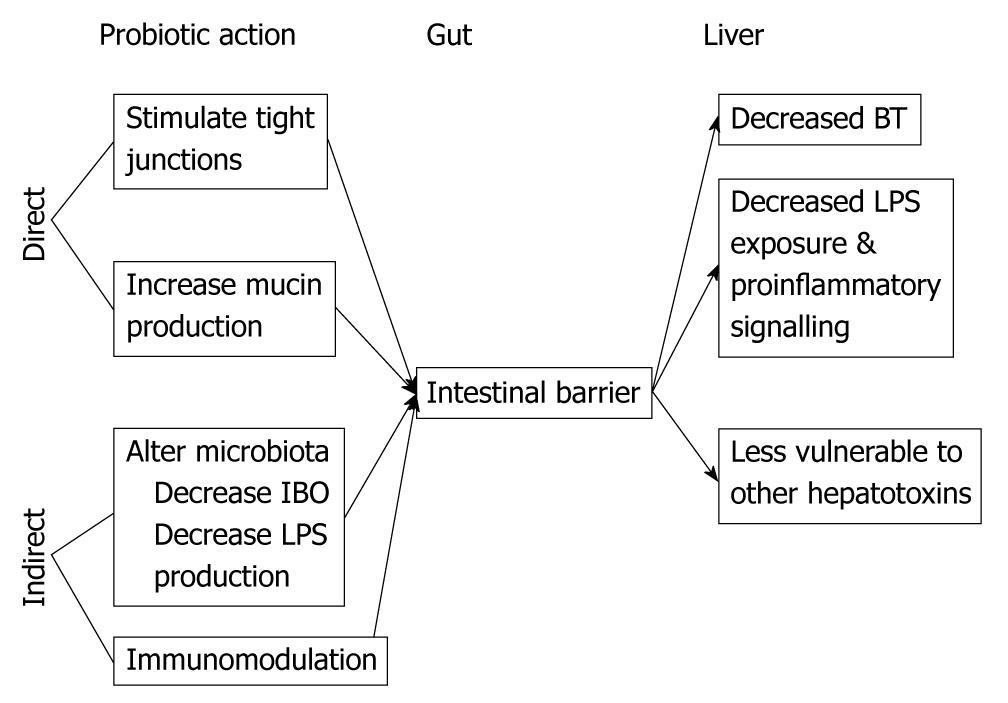Copyright
©2010 Baishideng.
World J Gastroenterol. Jan 28, 2010; 16(4): 403-410
Published online Jan 28, 2010. doi: 10.3748/wjg.v16.i4.403
Published online Jan 28, 2010. doi: 10.3748/wjg.v16.i4.403
Figure 1 Potential mechanisms of action by which probiotics can promote GI health and the consequences for the liver.
Probiotics and surface-layer proteins competitively exclude microbial pathogens from mucosal surfaces. Tight junction proteins, such as zona occludins-1 and claudin1, remain intact and thereby prevent both uptake of intact macromolecules and translocation of viable organisms (BT) to mesenteric lymph nodes, and ultimately to the liver. Through a cascade of signalling events, probiotics enhance production and secretion of anti-inflammatory cytokines, including interleukin-10 and transforming growth factor-β, by a subset of immune cells, referred to as T regulatory cells. Innate immune responses to probiotics include increased mucin and trefoil factor production by goblet cells and enhanced production of antibacterial defensins by Paneth cells and intestinal epithelia. Probiotics might alter the intestinal microbiota and hence limit intestinal bacteria overgrowth (IBO) and the production of lipopolysaccharides (LPS).
- Citation: Gratz SW, Mykkanen H, El-Nezami HS. Probiotics and gut health: A special focus on liver diseases. World J Gastroenterol 2010; 16(4): 403-410
- URL: https://www.wjgnet.com/1007-9327/full/v16/i4/403.htm
- DOI: https://dx.doi.org/10.3748/wjg.v16.i4.403









